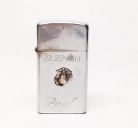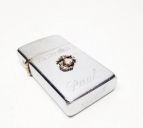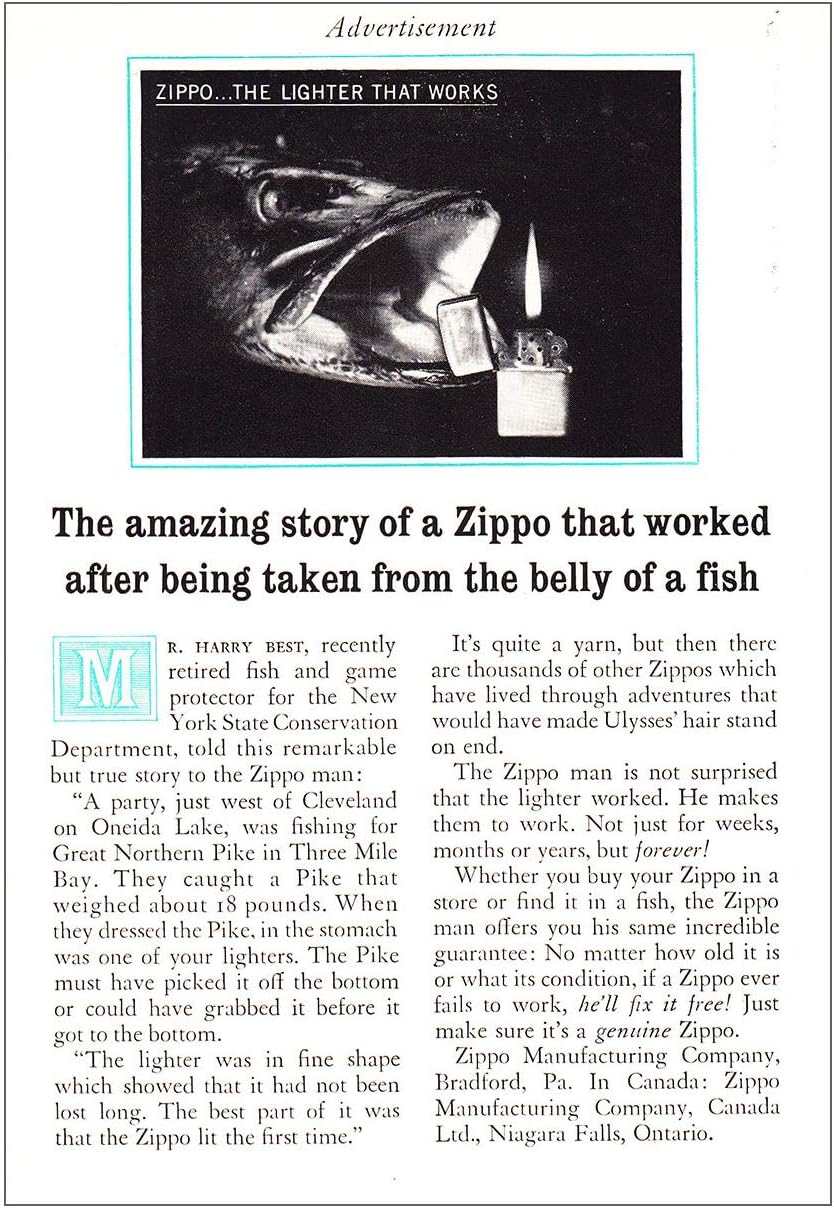Zippo: A status symbol?
This Zippo was owned by a US Marine named Paul. Personalizing the Zippo this way was possible because of its execution in brass, which is easily engraved. This simple fact brings us to the origin story of the Zippo. From the very beginning, George G. Blaisdell (a.k.a. “Mr. Zippo”), wanted to sell to the rich at a high price in return for free maintenance for life, a durable refillable product, and an attractive metal casing that allowed for personalization. It was designed as an alternative to the Austrian lighters known as IMCO (Fig. 5), which had become popular during the 1920s. Mr. Zippo considered the IMCO unsightly and cumbersome and was determined to build a luxury lighter worthy of association with the richer members of society (fig. 6).
Since it was a luxury product, the company provided customer service that was unmatched on the market. Should the internal parts of the lighter become damaged, Zippo would repair it for free regardless of when it was purchased. If it could not be repaired, it would be replaced by a brand new alternative lighter. What better way to market another basic feature of the Zippo: its durability (Fig. 7).


](https://micrio.thingsthattalk.net/NJZwJ/views/max/171x128.jpg)

](https://micrio.thingsthattalk.net/FMjAl/views/max/128x128.jpg)